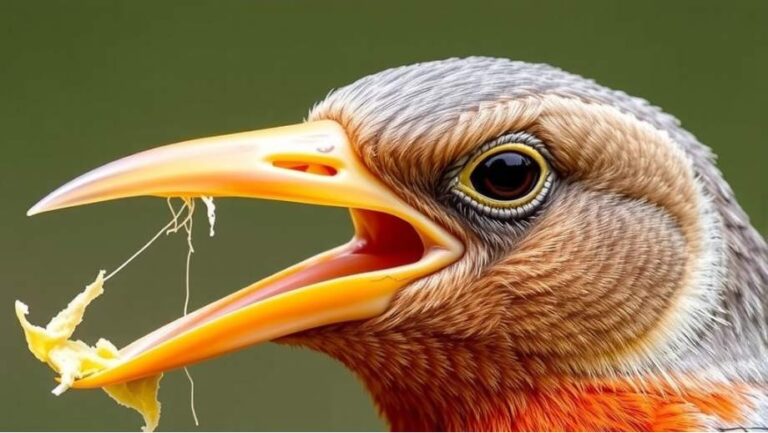20 Tips for African Ringneck Parrot Care: Your Complete Guide
African Ringneck Parrots, with their vibrant colors and charming personalities, make great companions. These intelligent, social birds are known for their playful nature and ability to mimic speech.
Like all parrots, they require specific care to ensure they thrive. Here’s your comprehensive guide to keeping your African Ringneck healthy, happy.

African Ringneck Parrot Care
1. Provide a Spacious Cage
African Ringneck Parrots need ample space to move around. Choose a cage that’s at least 24 inches wide, 24 inches deep, and 36 inches tall for one bird. Larger is better, especially if you have more than one parrot.
2. Proper Cage Setup
Fill the cage with perches of varying sizes and textures to prevent foot problems. Avoid smooth, plastic perches that offer no foot exercise. Natural wood perches are ideal.
3. Cage Location Matters
Place the cage in a quiet yet social area of your home where your bird can interact with family members. Avoid drafts, direct sunlight, and areas with excessive noise.
4. Maintain the Right Temperature
African Ringneck Parrots thrive in temperatures between 65-80°F (18-27°C). Avoid placing the cage near heat sources or cooling vents.
5. Offer a Balanced Diet
Feed your African Ringneck a nutritious diet that includes high-quality pellets, fresh fruits, and vegetables. Pellets should form the base, while fruits like apples, berries, and oranges, and vegetables like carrots, spinach, and sweet potatoes, make excellent additions.
6. Avoid Toxic Foods
Certain foods are toxic to African Ringnecks, including avocado, chocolate, caffeine, onions, garlic, and alcohol. Always research new foods before offering them to your bird.
7. Fresh Water Daily
Always provide fresh, clean water. Change the water at least once a day to prevent bacterial growth.
8. Regular Bathing
African Ringneck Parrots enjoy baths. Offer them a shallow dish of water for a quick splash or gently mist them with a spray bottle for a refreshing shower.
9. Mental Stimulation Is Key
These birds are highly intelligent and need mental stimulation. Provide toys like puzzle feeders, mirrors, and foraging toys to keep their minds active. Rotate toys regularly to prevent boredom.
10. Training for Bonding and Behavior
Training is essential for African Ringnecks, as they are highly trainable. Use positive reinforcement with treats to teach them commands and tricks. This helps strengthen your bond and can reduce unwanted behaviors.
11. Out-of-Cage Time
Allow your African Ringneck several hours outside the cage each day. This time lets them fly, exercise, and bond with you. Make sure the area is bird-proofed for safety.
12. Regular Interaction
African Ringnecks are social birds that thrive on attention. Spend time talking, playing, or simply sitting with your parrot daily to prevent loneliness and depression.
13. Provide Socialization Opportunities
Ringnecks are naturally social, so if you have more than one, they can enjoy each other’s company. However, make sure each bird has enough space and attention to avoid territorial issues.
14. Watch for Behavioral Changes
Keep an eye on changes in behavior, as these can indicate health issues. If your bird is suddenly more lethargic, aggressive, or stops eating, consult a vet immediately.
15. Create a Safe, Stimulating Environment
Bird-proof your home by removing potential hazards such as open windows, toxic plants, or accessible electrical cords. Make sure your bird has enough entertainment to stay busy.
16. Be Patient with Screaming
Ringnecks can be noisy, especially when they are trying to get your attention or are bored. Redirect their energy with toys, interaction, or training to reduce excessive screeching.
17. Provide a Comfortable Sleep Routine
Ringnecks need a consistent sleep schedule to stay healthy. Make sure their cage is placed in a quiet area for 10-12 hours of sleep each night.
18. Watch for Health Issues
Keep an eye out for signs of illness such as changes in droppings, fluffed-up feathers, or breathing difficulties. Early intervention is crucial for preventing serious health problems.
19. Consider a Vet for Regular Check-ups
An annual vet check-up is essential for your bird’s overall health. African Ringnecks are prone to certain diseases like respiratory infections and nutritional deficiencies, so routine exams are a good preventive measure.
20. Create a Long-Term Bond
African Ringneck Parrots can live for 20-30 years with proper care, so building a strong bond with them is important. Invest time in their care and training to enjoy a rewarding, long-lasting relationship.
Most of the bird lovers found this Trail Camera for Bird Watching helpful.
Conclusion
African Ringneck Parrots are intelligent, playful, and beautiful pets, but they require a lot of attention and care to stay happy and healthy.
Providing the right diet, environment, mental stimulation, and socialization, your African Ringneck will be a delightful and cherished companion for years to come.
Remember, a well-cared-for parrot is not only happy but also well-behaved, making your relationship even more rewarding.






